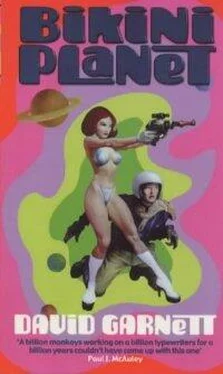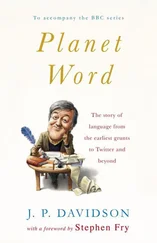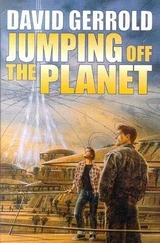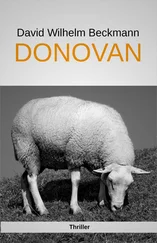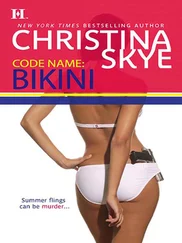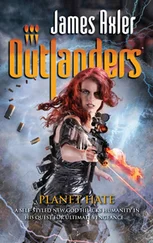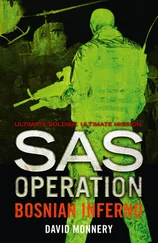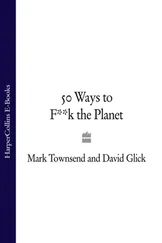“I thought you’d want to see the world,” said Travis.
Norton gazed down, but all he could see was mist. Or fog. Or…
“Are those clouds?” he asked.
“Yes,” said Travis. “You should have kept your eyes open during the ride up here.”
The building was a pyramid of golden glass, and they had reached the summit via a transparent outside elevator. In the distance, he could see the sun reflecting off other peaks, other immense buildings. They were the size of mountains.
“This isn’t Las Vegas, is it?” said Norton.
“No,” said Travis.
“New York?”
“No.”
“The United States no longer exists?” Norton was still cross-checking his information.
“Not the one you knew.”
Norton looked up, up into the sky. “It used to be blue,” he said.
The sky was yellow.
“That’s the roof,” said Travis. “It keeps the air breathable, keeps out the cold and wind, filters the ultraviolet radiation.”
Any lingering doubts Norton may have had about his temporal journey had vanished during his ascent of the glass pyramid. This sure wasn’t 1968. The world looked amazing.
And so did Colonel Travis.
Tall and broad, strong and muscular, he was dressed in what must have been a uniform, with epaulettes and ribbons and braid, badges and chevrons and insignia. But his loose tunic was bright orange with green pockets and was open to the waist, and his pants were wide and baggy, lime green with orange stripes. His belt and his boots were yellow, and he wore spurs on his heels and a sword on his hip. He could have been starring in The Arabian Nights .
Travis was black, but his shoulder-length hair was white, as were his eyebrows and eyelashes. His eyelids and lips, even his fingernails, were also white—because of his eyeshadow and lipstick and nail varnish.
Norton was wearing a reasonably smart sweater and not-too-crumpled slacks, but he was the one who looked out of place. There was no predominant clothing style amongst the other people on the roof, their outfits varying from beachwear to fantastically elaborate costumes. Every face was painted with gaudy makeup, and there wasn’t one natural hairstyle or colour to be seen. It was as if they were all at a bizarre fancy-dress party.
Spread around the roof were tables and chairs, almost like those of the twentieth century, except that they had no legs. People were sitting and eating, talking and drinking, just as they would have done in the twentieth century. (And they did have legs.)
Travis led Norton to one of the tables and sat on one of the floating seats. Very carefully, Norton also sat down. The seat took his weight.
“At one time,” said Travis, “people had to book months ahead to get a table here.”
Norton didn’t believe him. Who would book for a meal so far in advance? “They’d have starved to death by then,” he said.
Travis smiled. “That was before the Crash, of course. For a long time after that, no one could afford the prices here. If it wasn’t for those of us on the guest list, the place would never have had any customers.”
“The Crash,” said Norton, remembering what Mandy and Brendan had told him, “that was when the global economy took a nosedive?”
“Yes.” Travis nodded. “You can tell things are improving by looking around this place.” As he spoke he looked around. “Elite restaurants are an economic barometer.” He glanced at Norton. “What is a barometer? Did they have them in your time?”
“Yeah, they did. It was a kind of… er… a device for measuring the weather.”
Travis kept staring at Norton, and he nodded again. “So much has been forgotten,” he said. Then he shrugged. “Because most of it isn’t worth remembering.”
“That happened because of the Crash?”
“No, long before then. A hundred years ago. Or more. Or was it less? No one knows exactly.” Travis laughed. “There was a total data meltdown, a complete erasure of almost all the world’s information. The Crash was bad enough—we’re still living through it—but Day Zero must have been absolutely catastrophic. You want a drink?”
All Brendan had ever offered was water. Cold or hot, it always reminded Norton of being frozen. He shivered for a moment.
“How about a Coke?” he said. Surely some things were eternal.
“You’re cold?”
“What?”
“You want a coat because you’re cold?”
“No. I want a Coke. Or a Pepsi.”
“What?”
“Does cola still exist?”
“Cola, yes, of course,” said Travis. “Cuba Cola is the world’s most popular drink. With ice?”
“No,” said Norton, and he shivered again.
A waitress came over to their table. She was as tall as Travis. If he was Ali Baba, she was Scarlet O’Hara at the grand ball in Gone with the Wind —or almost. Her bodice was cut very low, her long skirt was flared out by numerous lacy petticoats, but the entire outfit seemed to be made of metal filaments which changed colour every few seconds. She carried an open parasol with the same iridescent effect, reflecting a random rainbow down onto her shaven scalp.
“One Cube,” said Travis, “and a vodsky. I’m on duty, so make it a treble.”
The waitress glided away. Because her feet were hidden beneath her skirt, it was almost as if she were floating like the tables and chairs.
“How did you find me so fast?” asked Norton.
“I’m a good cop,” said Travis.
“Five minutes after I was on screen, three guys burst in. No one’s that good.”
Travis nodded. “Successful police work is all about good information, you know that. I already knew about you and where you were, and my team was already on its way.”
The informant had to be Mandy, Norton realised. That was why she’d been so calm when the masked intruders arrived. It was no coincidence that they had appeared so soon after her interview was shown. It must have been part of the deal.
“Why did they have to free me like that?”
“They didn’t free you. You belonged to Corpses Unlimited. Now you belong to… Cops Unlimited!”
“You mean you… you stole me?”
“No,” said Travis. “We’re the police. We don’t steal. We redistribute. If we could have bought you, we would have. Because of the Crash, we’re still operating under severe budget limitations.”
“Those three cops—”
“They’re not cops,” Travis interrupted. “They’re history professors. I paid them to check you out, then get you out. They did it the other way around.”
Norton had heard of tough schools, but college students must have been extremely violent these days. “Do professors always carry guns?”
“Usually only on assassination missions.”
“What?”
“Death threats really improve examination results.”
“You must be kidding.”
“Yes.” Travis smiled. “Guns are dangerous. People can get hurt or killed. That’s why terminal armaments are severely restricted.” He put his hand on his sword hilt. “This is my authorised weapon.”
“Okay, so those guys were a gang of teachers with illegal weapons?”
“Imitation weapons, but they didn’t know that. They were armed to make sure you behaved. You could have been dangerous, a human slaughter machine from three centuries ago.”
“How do you know I’m not?”
“Successful police work is all about good character analysis,” said Travis.
“If I’d been a homicidal maniac, what use were imitation guns?”
“No use at all. That’s why I didn’t send my own men. A few history professors are expendable.”
“They didn’t know much history,” said Norton.
“More expendable than I thought.”
Читать дальше
